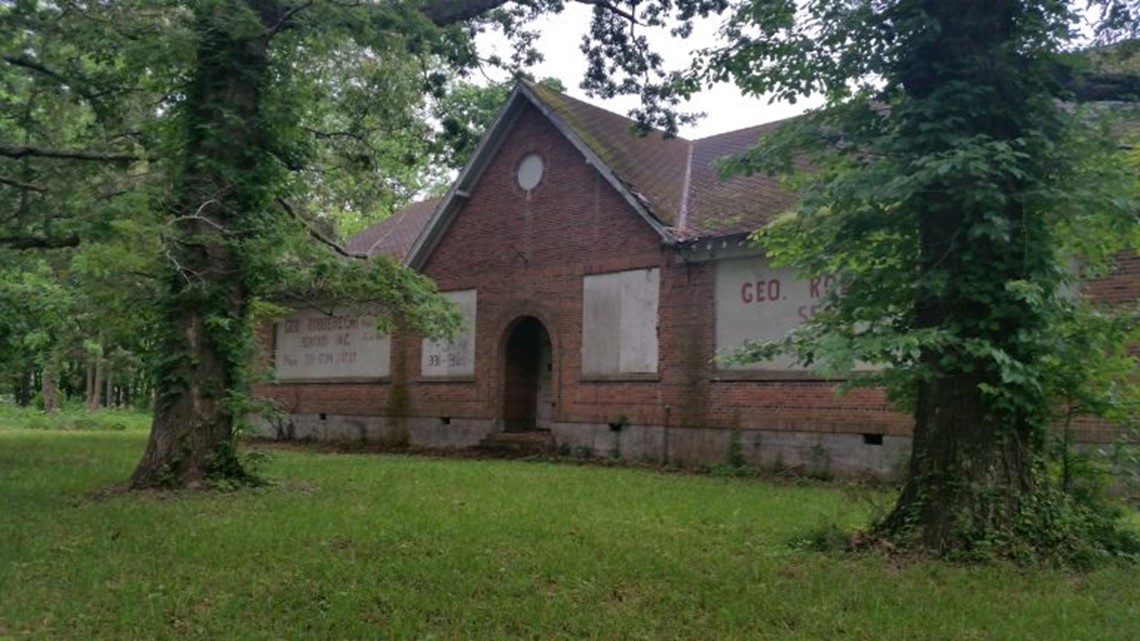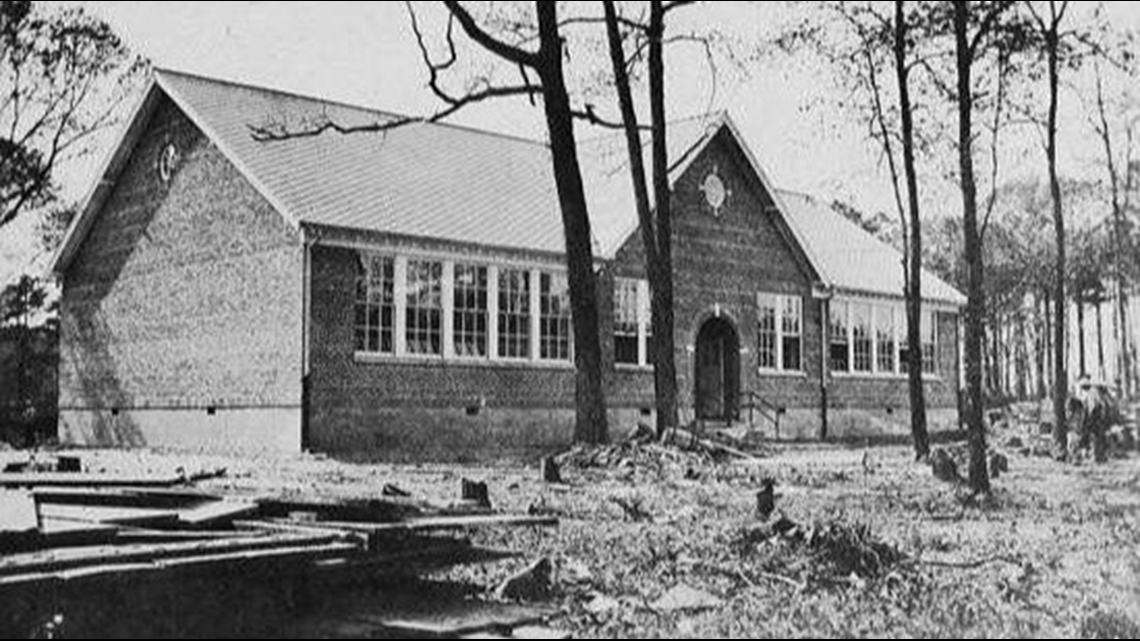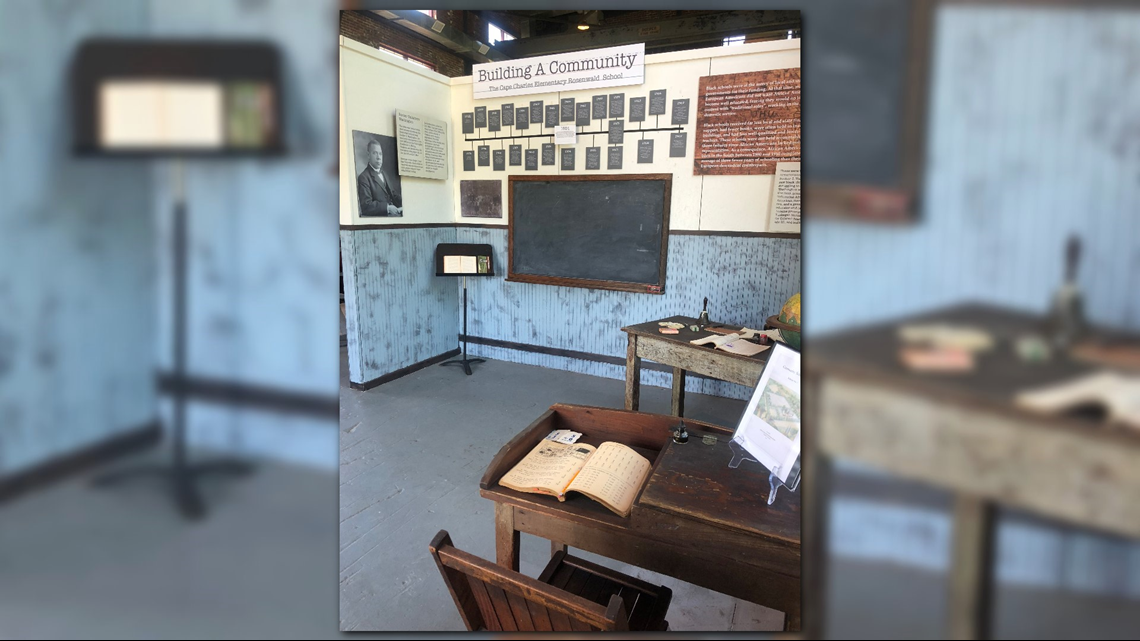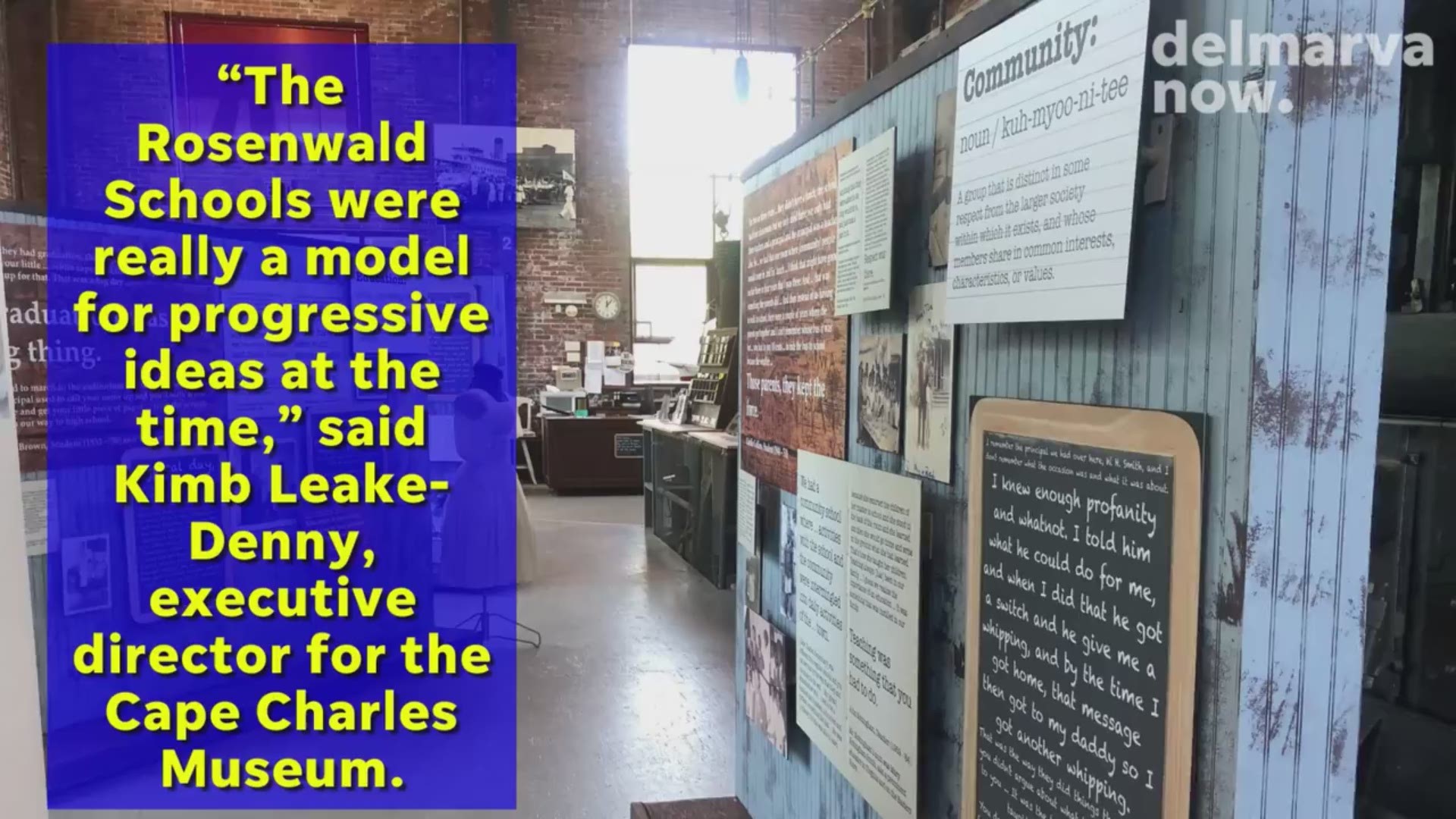CAPE CHARLES, Va. (Delmarva Now) -- In May of 1928, the town of Cape Charles purchased 2.5 acres from the Pennsylvania Railroad to build a new African-American school.
A new exhibit at the Cape Charles Museum and Welcome Center tells the story of that four-classroom schoolhouse during the era of legal segregation.
“Building a Community: The Cape Charles Elementary (Rosenwald) School” shares first-hand accounts from former students and teachers to tell the story of the partnership between educator Booker T. Washington, businessman Julius Rosenwald and the local African-American community in the early 20th century.
Named for its financier, Rosenwald, but also funded equally by the local black community, the school saw hundreds of African-American elementary students enter its doors between 1928 and 1966, when Northampton County consolidated its schools.
“The Rosenwald Schools were really a model for progressive ideas at the time,” said Kimb Leake-Denny, executive director for the Cape Charles Museum, of the more than 5,000 similar institutions built across the rural South.
“The Cape Charles Elementary, among Rosenwald Schools, is really a jewel because it was built to such high standards,” she said. “It really is a historic jewel.”
Opening in 1929, the brick schoolhouse contained four classrooms and an auditorium and housed black students in grades 1 through 7.
Employing three teachers and a principal — who often doubled as an instructor — for much of its history, its enrollment reached 75 by 1950.
That number nearly doubled by the late 1950s, Denny said.
The school closed in December 1966, when Northampton County consolidated its schools, four years before they were integrated.
Although they remained in segregated classrooms, students moved to the Cape Charles High School during the 1965-1966 school year, making Cape Charles one of the first school districts on Virginia’s Eastern Shore to technically integrate.
The idea for the exhibit exploring the history of the school and desegregation came about a few years ago, when the Virginia Foundation for the Humanities commissioned an assessment of local museums, Denny said.


“One of their biggest observations was that the African-American community and their experiences were grossly underrepresented in the museums up and down the Eastern Shore,” she said.
Drawing on an earlier oral history project by the Cape Charles Rosenwald School Restoration Initiative, the museum tells the story of the schoolhouse through first-person narratives.
“They have an oral history project called ‘Voices from Over the Hump’ (from) several years back where they interviewed former students and teachers from the Cape Charles Elementary School,” Denny said, “so we had a very rich lexicon to pull from … as told first-person from the people who actually lived it.”
Narrators discuss topics from the school’s history and education to hours spent at recess in the exhibit “to make it as accessible as possible to a wide range of ages,” Denny said.
The exhibit also explores the history of desegregation in Virginia schools and gives information about Washington and Rosenwald, the men who helped build thousands of schools in rural African-American communities across the South.
The son of a German-Jewish immigrant who rose from apprentice to CEO of Sears, Roebuck & Company, Rosenwald established his Rosenwald Fund in 1917.
During the course of his lifetime, the fund contributed millions in matching dollars to construct schools, shops and teachers’ homes in the South. The schools became informally known as Rosenwald Schools.
While Rosenwald provided financial backing, the African-American institutions were the brainchild of educator, author and orator Washington.
Building a nationwide coalition of middle-class blacks and white philanthropists and politicians, his goal was to build the African-American community’s economic strength and pride through a focus on self-help and schooling.
In this way, he secured donors to fund “the hands-on approach that he referred to as industrial education,” Denny said.
“The idea caught the imagination of Julius Rosenwald,” she said, and the Rosenwald Schools were born.
Though Rosenwald invested in the schools, an equal portion of their funding came from the local communities they served.
“In keeping with Booker T. Washington’s idea of self-help, the community helped provide labor to help build the schools,” Denny said. “The Rosenwald Fund ultimately provided the least amount toward the building of these schools.”
By the time the fund closed in 1932 with Rosenwald’s death and was depleted by 1948, African-American communities had built more than 5,000 schools across the rural South.


Most Rosenwald Schools have disintegrated over time, but the Cape Charles Elementary School still stands today, thanks to its high-quality brickwork.
The building is privately owned, but individuals can read a historical plaque outside its location on Old Cape Charles Road, just a few hundred yards on the right after crossing “the hump.”
“It’s in remarkably good condition. There’s some repair work that needs to be done, but it’s still beautiful,” Denny said.
Learn more about the historic school at the free exhibit at the Cape Charles Museum now through Nov. 24.
After that, its pieces will be offered to other Eastern Shore museums, Denny said.
The Cape Charles Museum is open weekdays from 10 a.m. to 2 p.m., Saturdays from 10 a.m. to 5 p.m. and Sundays from 1-5 p.m. It is open later on Tuesdays, until 6 p.m., throughout the summer.
Admission is free to the museum on Randolph Avenue, in downtown Cape Charles, although donations are welcome.
Call the museum at 757-331-1008 for more information.
“Building a Community: The Cape Charles Elementary (Rosenwald) School” was made possible by collaboration between the Cape Charles Historical Society, Cape Charles Rosenwald School Restoration Initiative and the Cape Charles-Northampton Heritage group, with a grant from Virginal Humanities.


IF YOU GO
“Building a Community: The Cape Charles Elementary (Rosenwald) School”
Where: Cape Charles Museum and Welcome Center, 814 Randolph Ave., Cape Charles
When: Through Nov. 24
Info: 757-331-1008

